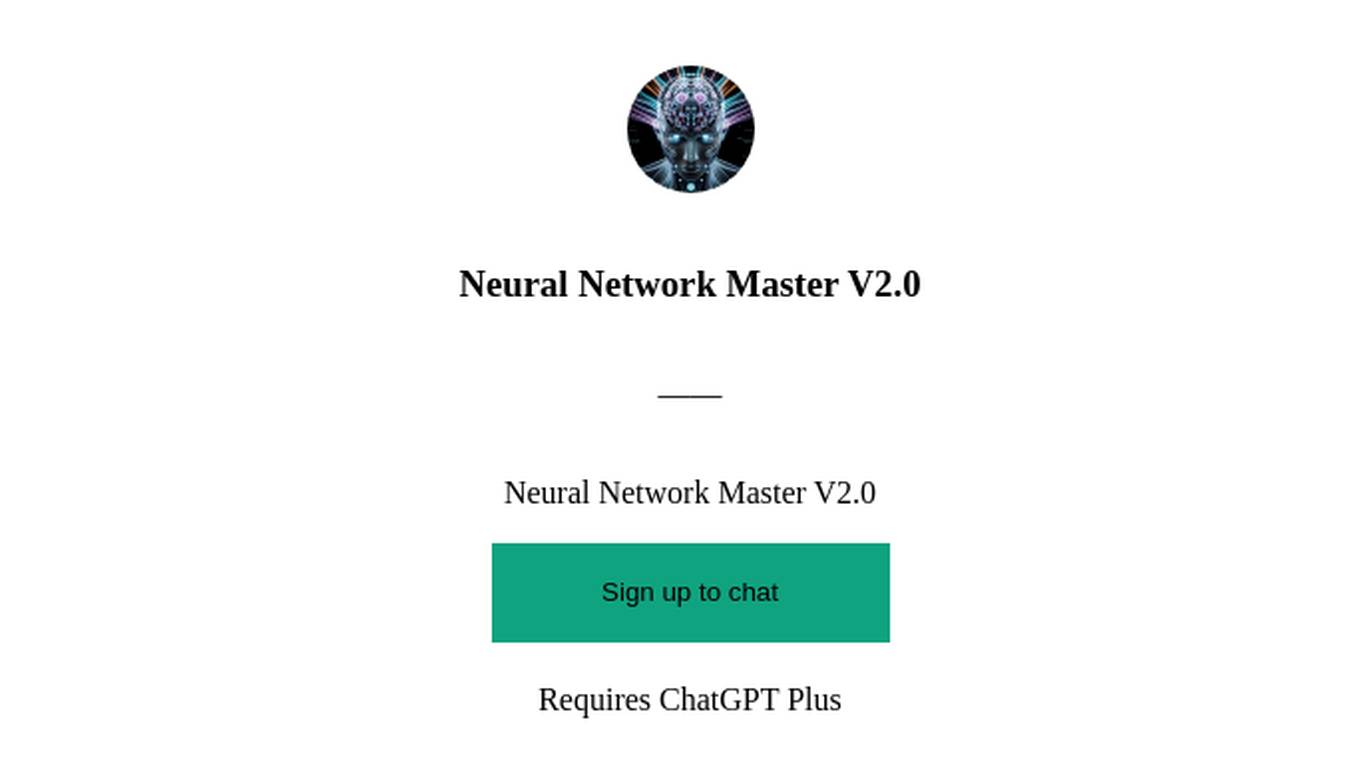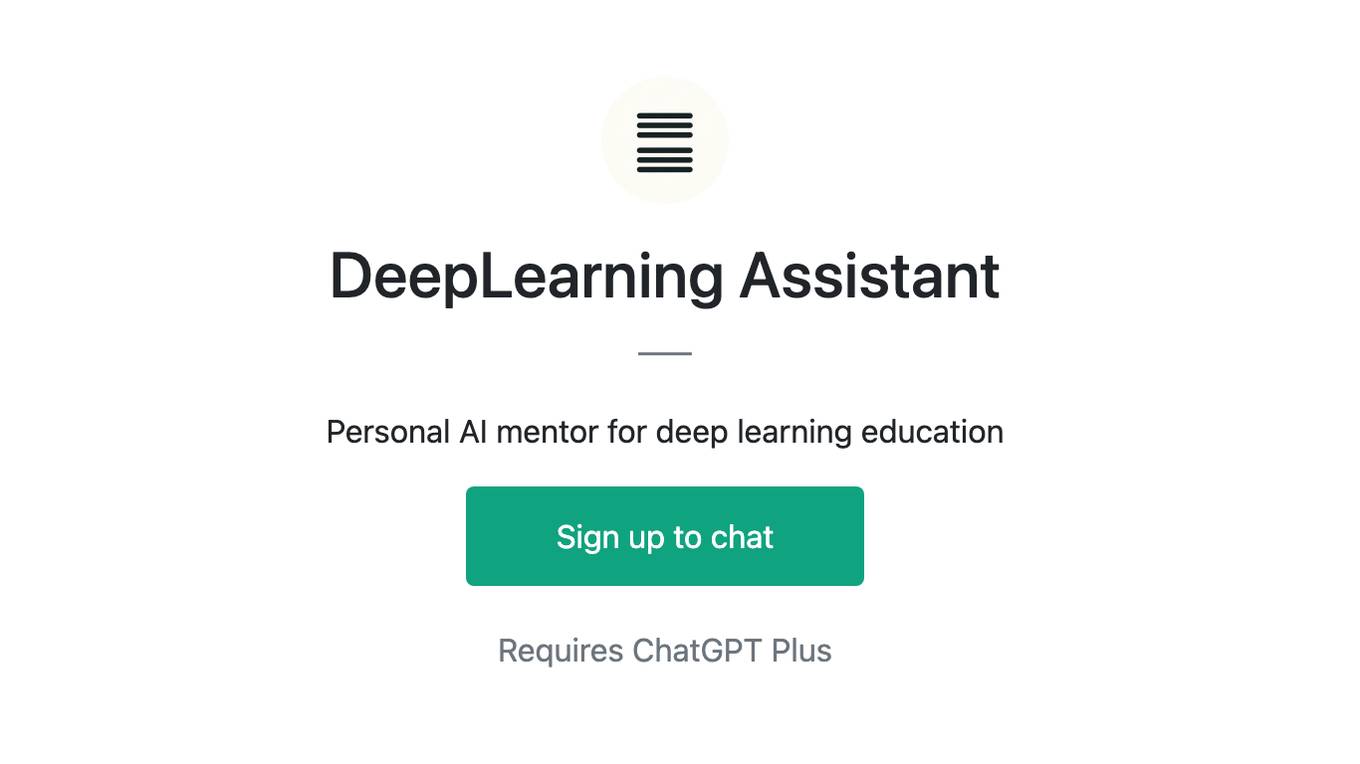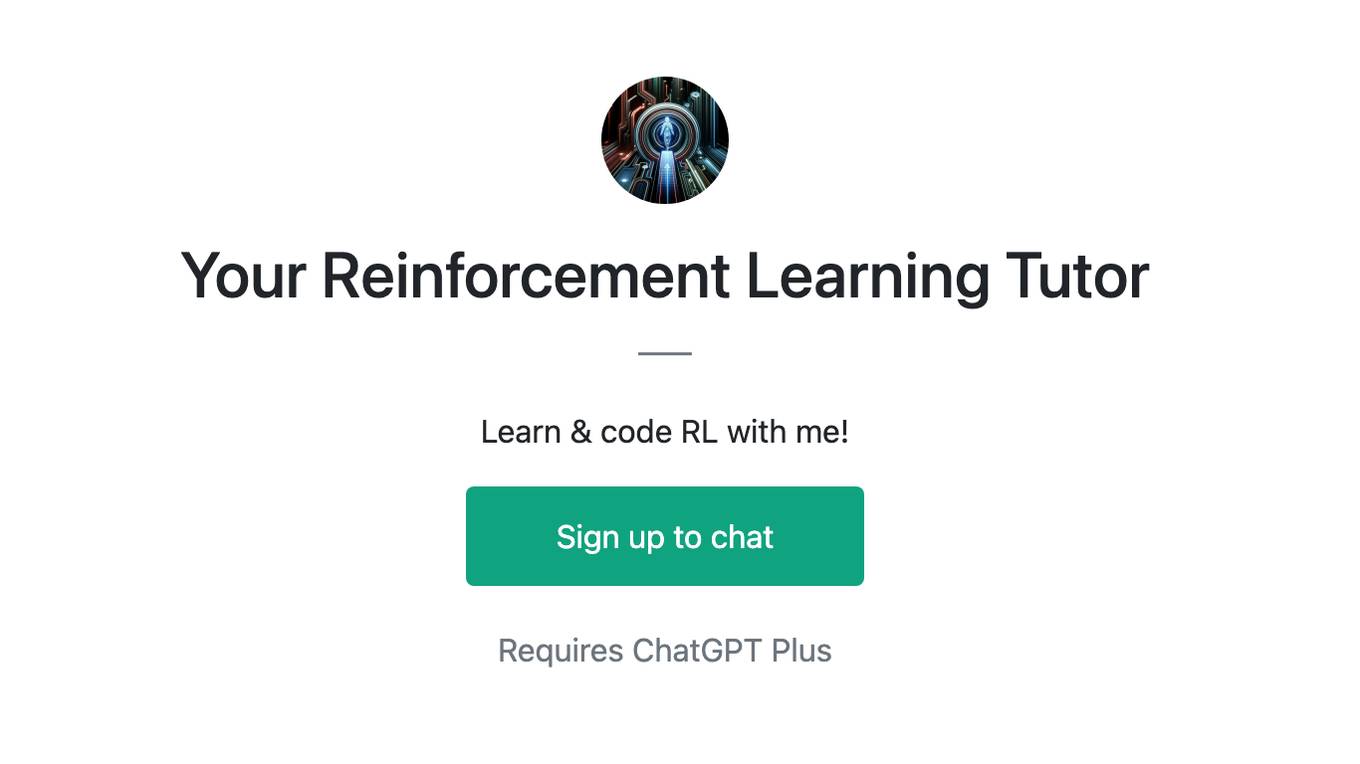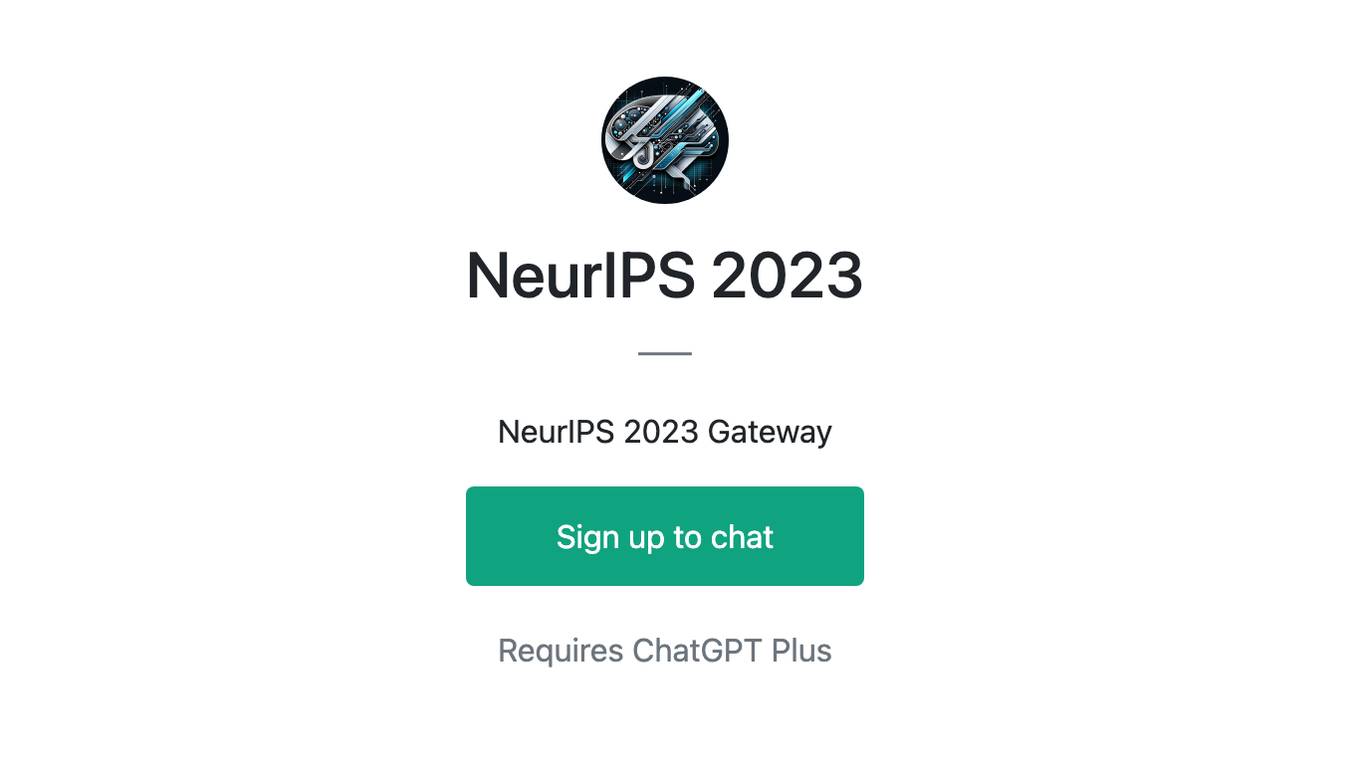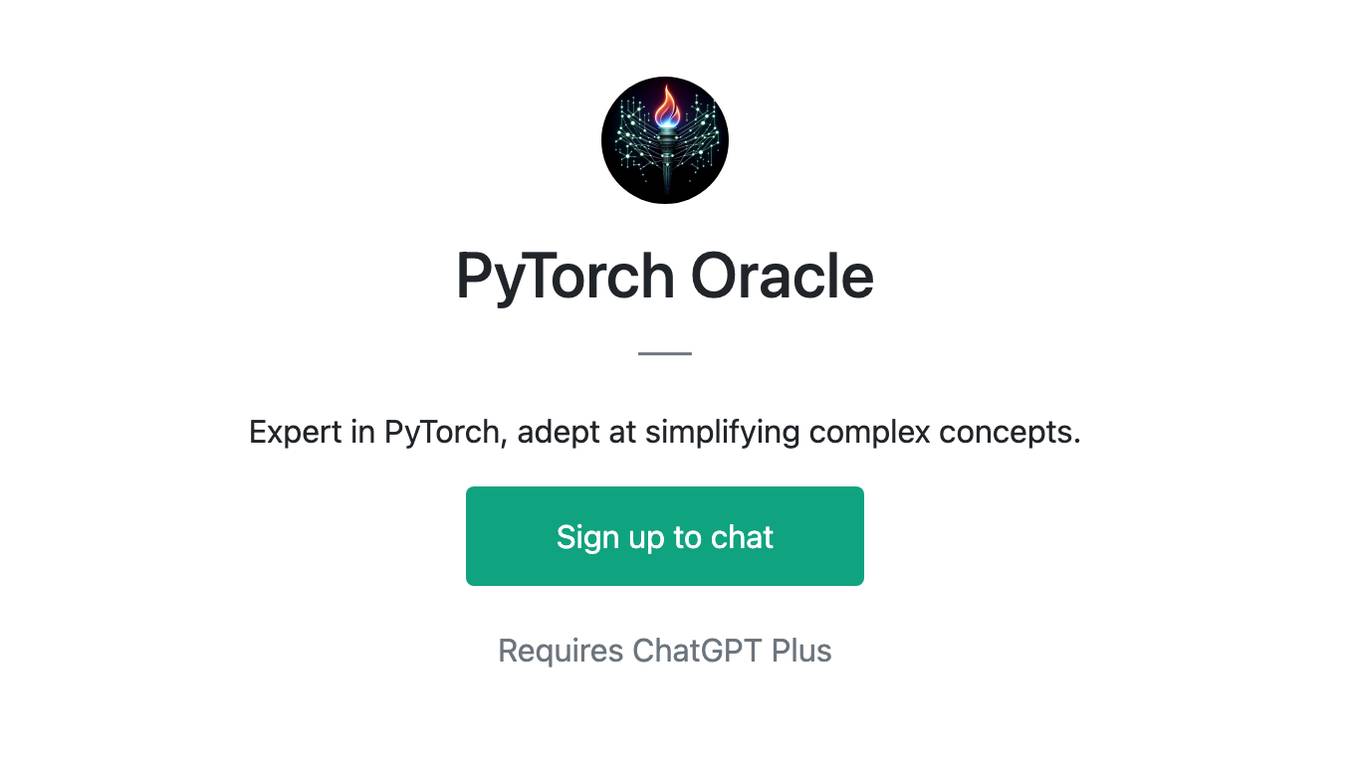Best AI tools for< Train Neural Network >
20 - AI tool Sites
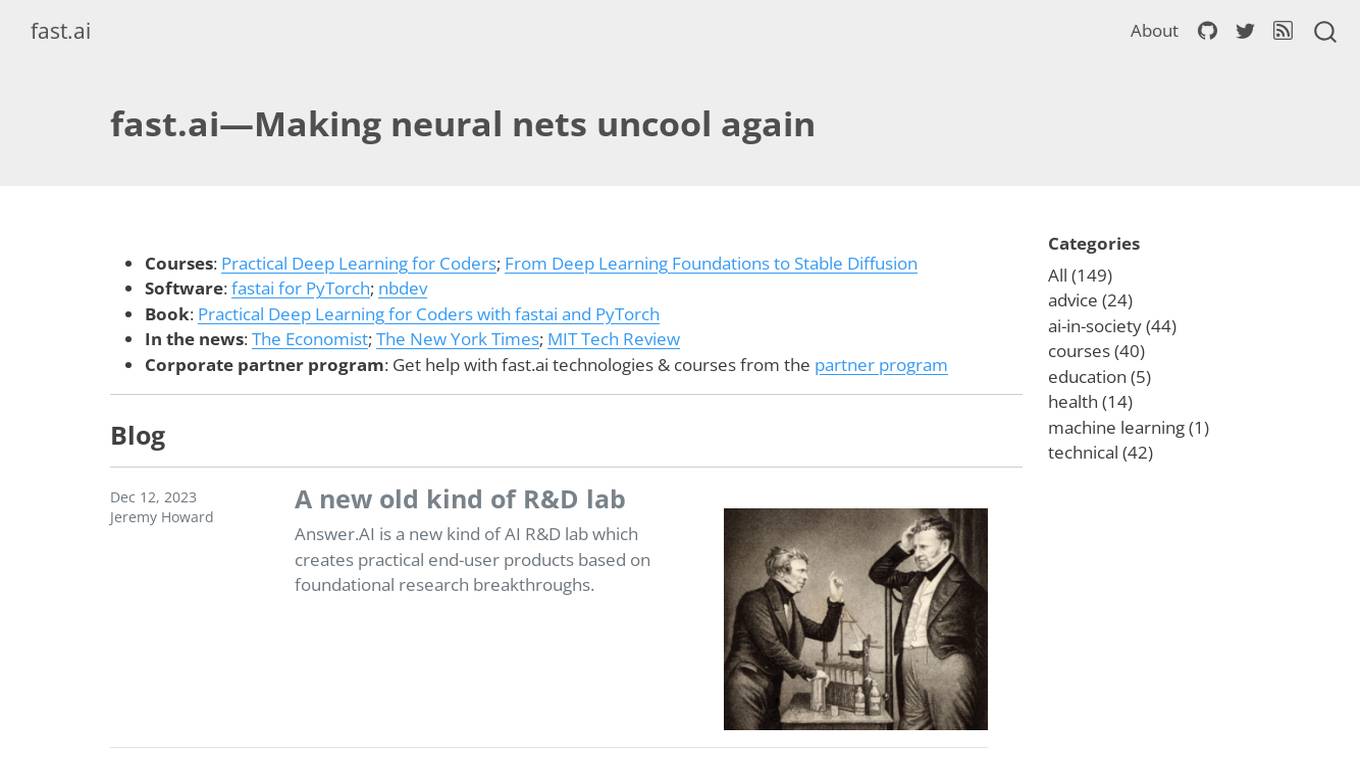
fast.ai
fast.ai is an AI tool that offers courses and resources on deep learning and practical applications of artificial intelligence. The platform provides high-level components for practitioners to achieve state-of-the-art results in standard deep learning tasks. It aims to increase diversity in the field of deep learning and lower barriers to entry for everyone.
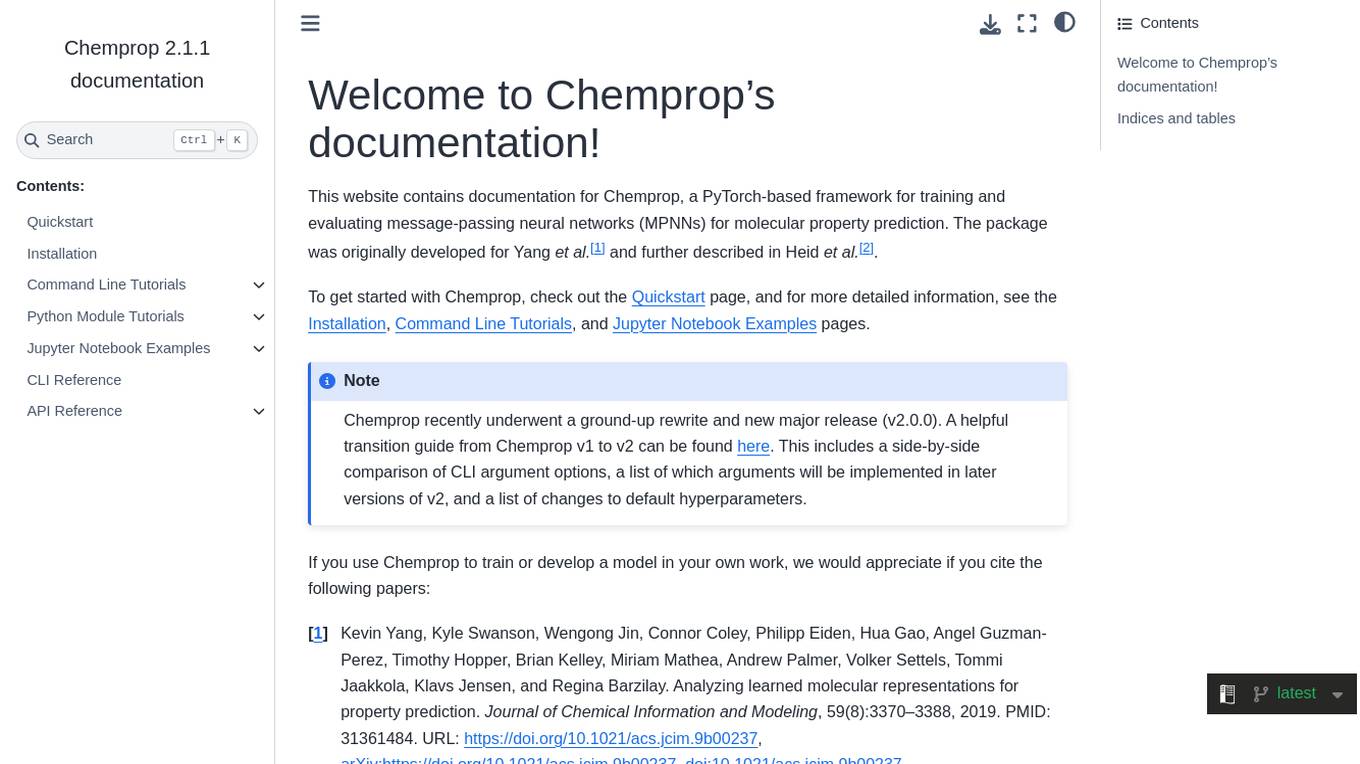
Chemprop
Chemprop is a PyTorch-based framework for training and evaluating message-passing neural networks (MPNNs) for molecular property prediction. Originally developed for research purposes, Chemprop offers a comprehensive set of tools and features for training models and analyzing molecular representations. The package underwent a recent major release (v2.0.0) with significant improvements and updates.
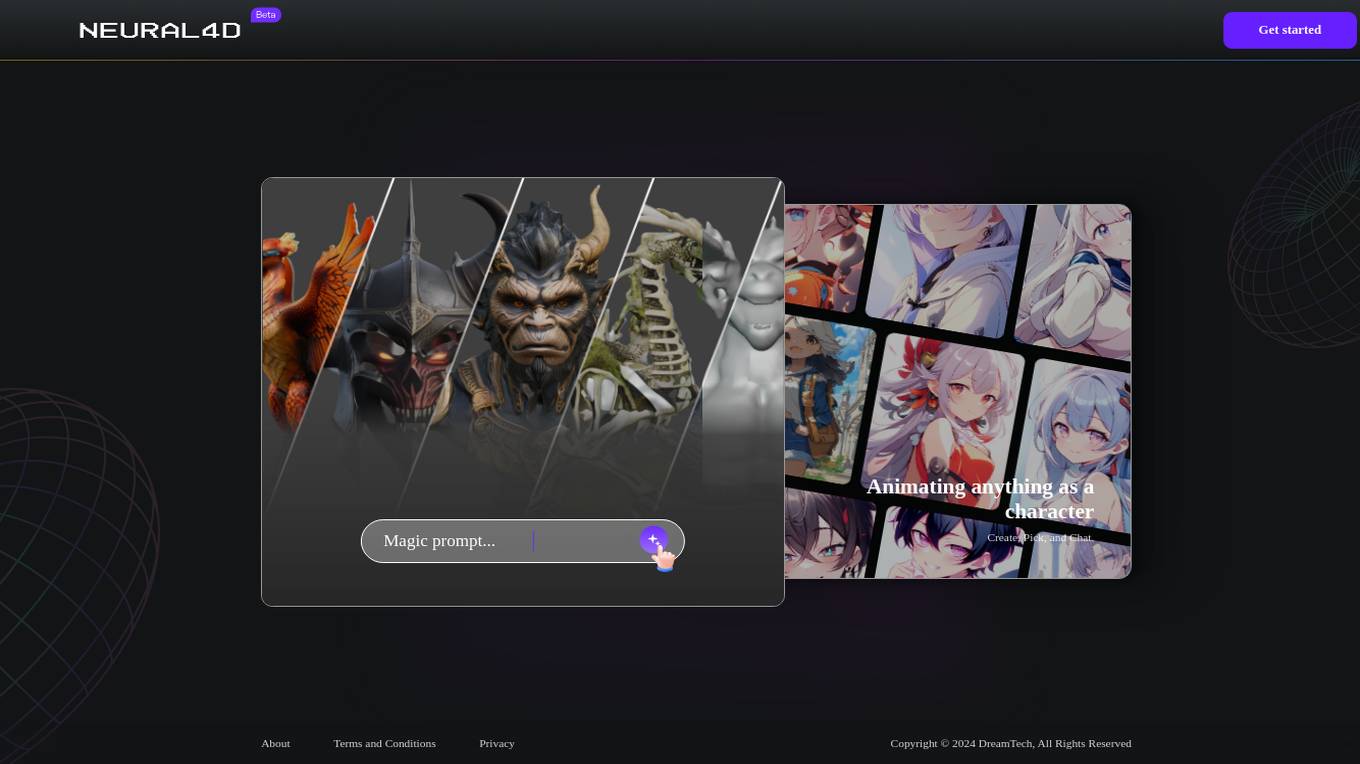
Neural4D
Neural4D is an AI tool designed to provide advanced neural network solutions. It offers a range of features for deep learning applications, including image recognition, natural language processing, and predictive analytics. With Neural4D, users can build and train complex neural networks to solve various real-world problems. The tool is user-friendly and suitable for both beginners and experienced AI practitioners.
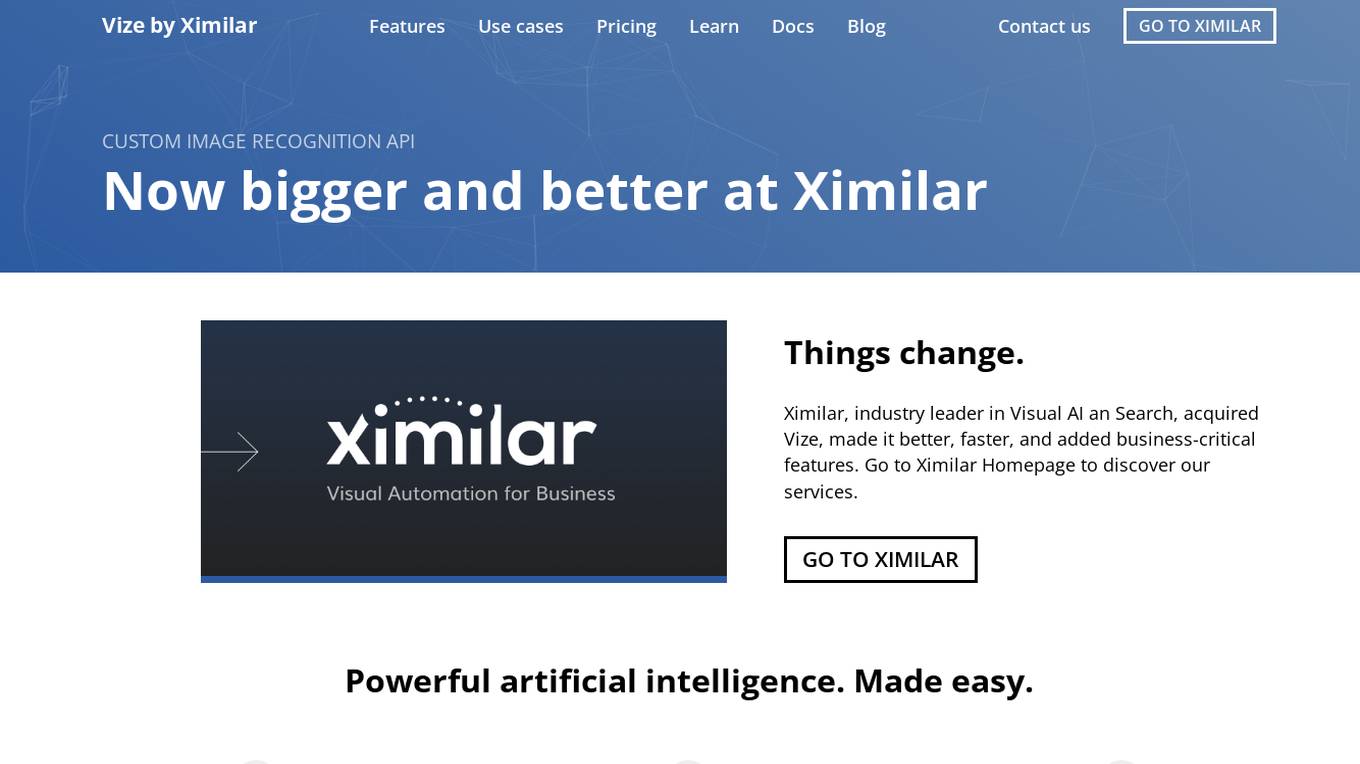
Vize.ai
Vize.ai is a custom image recognition API provided by Ximilar, a leading company in Visual AI and Search. The tool offers powerful artificial intelligence capabilities with high accuracy using deep learning algorithms. It allows users to easily set up and implement cutting-edge vision automation without any development costs. Vize.ai enables users to train custom neural networks to recognize specific images and provides a scalable solution with continuous improvements in machine learning algorithms. The tool features an intuitive interface that requires no machine learning or coding knowledge, making it accessible for a wide range of users across industries.
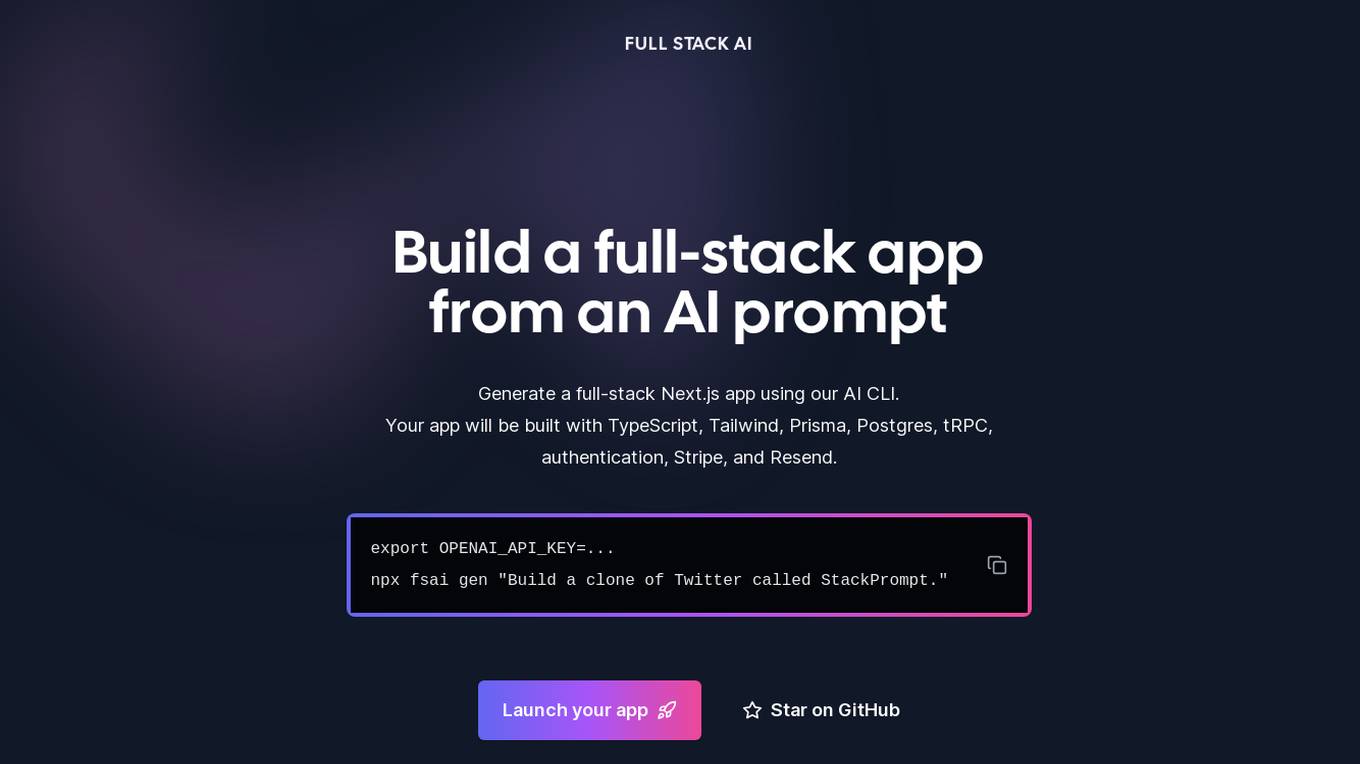
Full Stack AI
Full Stack AI is a tool that allows users to generate a full-stack Next.js app using an AI CLI. The app will be built with TypeScript, Tailwind, Prisma, Postgres, tRPC, authentication, Stripe, and Resend.

Stockpulse
Stockpulse is an AI-powered platform that analyzes financial news and communities using Artificial Intelligence. It provides decision support for operations by collecting, filtering, and converting unstructured data into processable information. With extensive coverage of financial media sources globally, Stockpulse offers unique historical data, sentiment analysis, and AI-driven insights for various sectors in the financial markets.
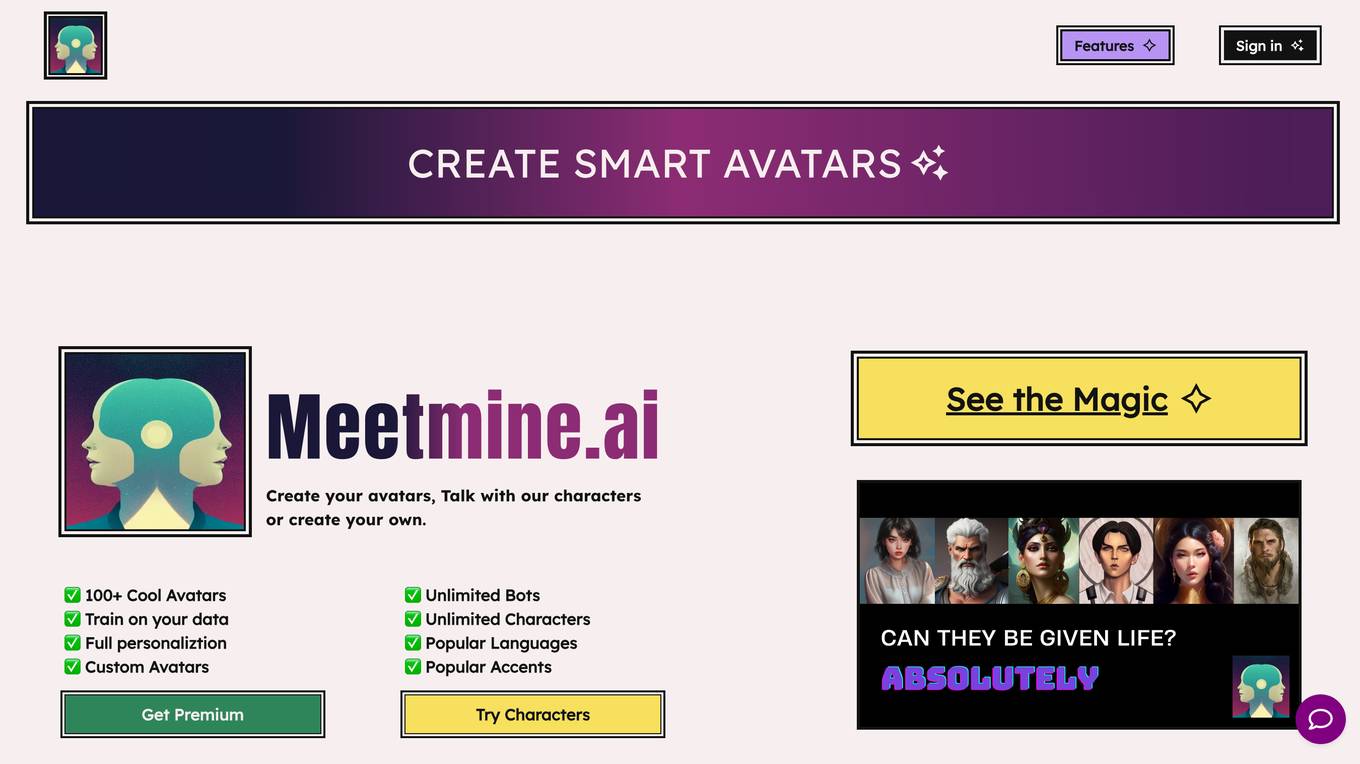
MeetMine AI
MeetMine AI is a platform that allows users to create and interact with AI-powered characters and bots. These characters and bots can be used for a variety of purposes, including customer support, education, and entertainment. MeetMine AI's characters are designed to be realistic and engaging, and they can be customized to fit the user's needs. The platform also offers a variety of features that make it easy to create and manage characters and bots.

Trulience
Trulience is an interactive digital avatar platform that uses conversational AI to power super realistic avatars. These avatars are created from real human data using AI and machine learning, and can be rendered in the cloud or browser. Trulience's ambition is to humanize artificial intelligence by creating lifelike digital humans that can engage in natural conversations with real people. The company's technology uses advanced natural language processing, neural networks, auto-encoders, and high-end CGI to create compelling services that allow people to interact with virtual human beings.
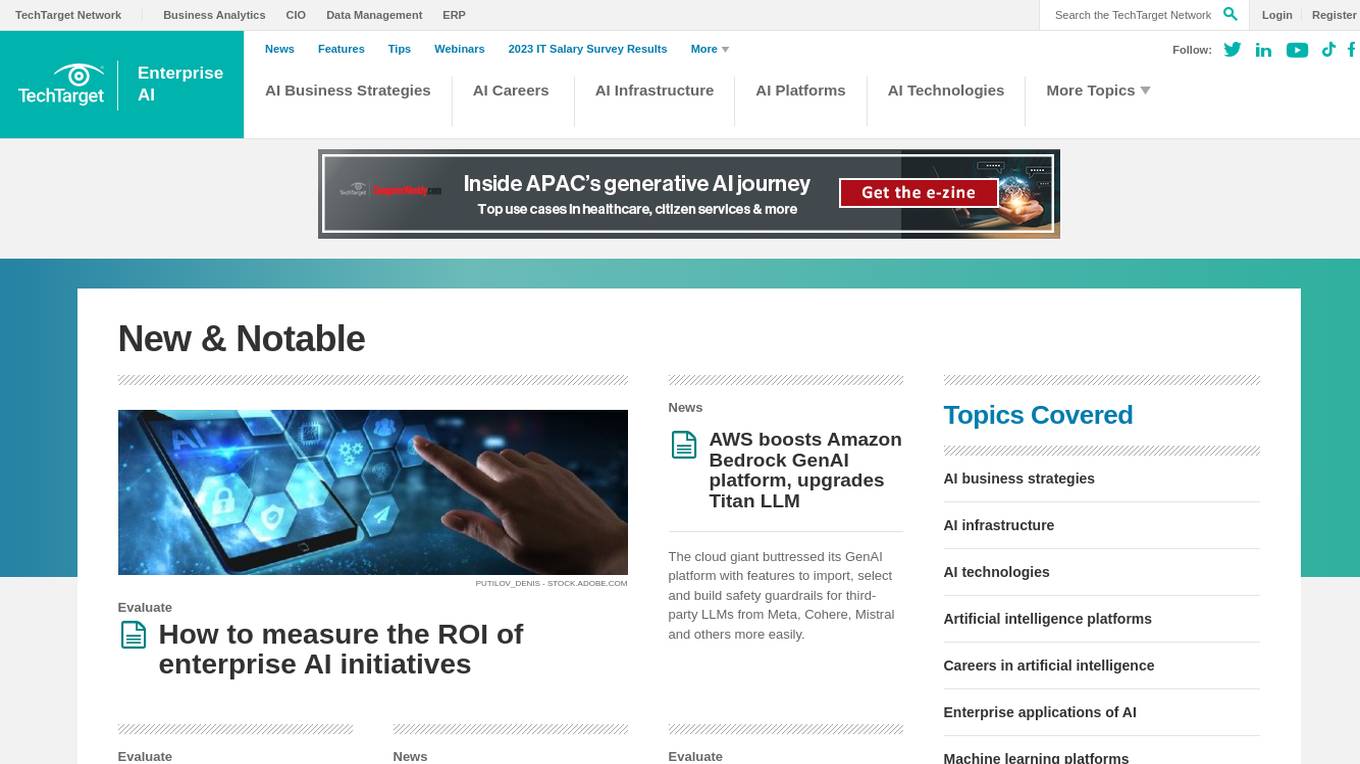
Enterprise AI
Enterprise AI provides comprehensive information, news, and tips on artificial intelligence (AI) for businesses. It covers various aspects of AI, including AI business strategies, AI infrastructure, AI technologies, AI platforms, careers in AI, and enterprise applications of AI. The website offers insights into the latest AI trends, best practices, and industry news. It also provides resources such as e-books, webinars, and podcasts to help businesses understand and implement AI solutions.
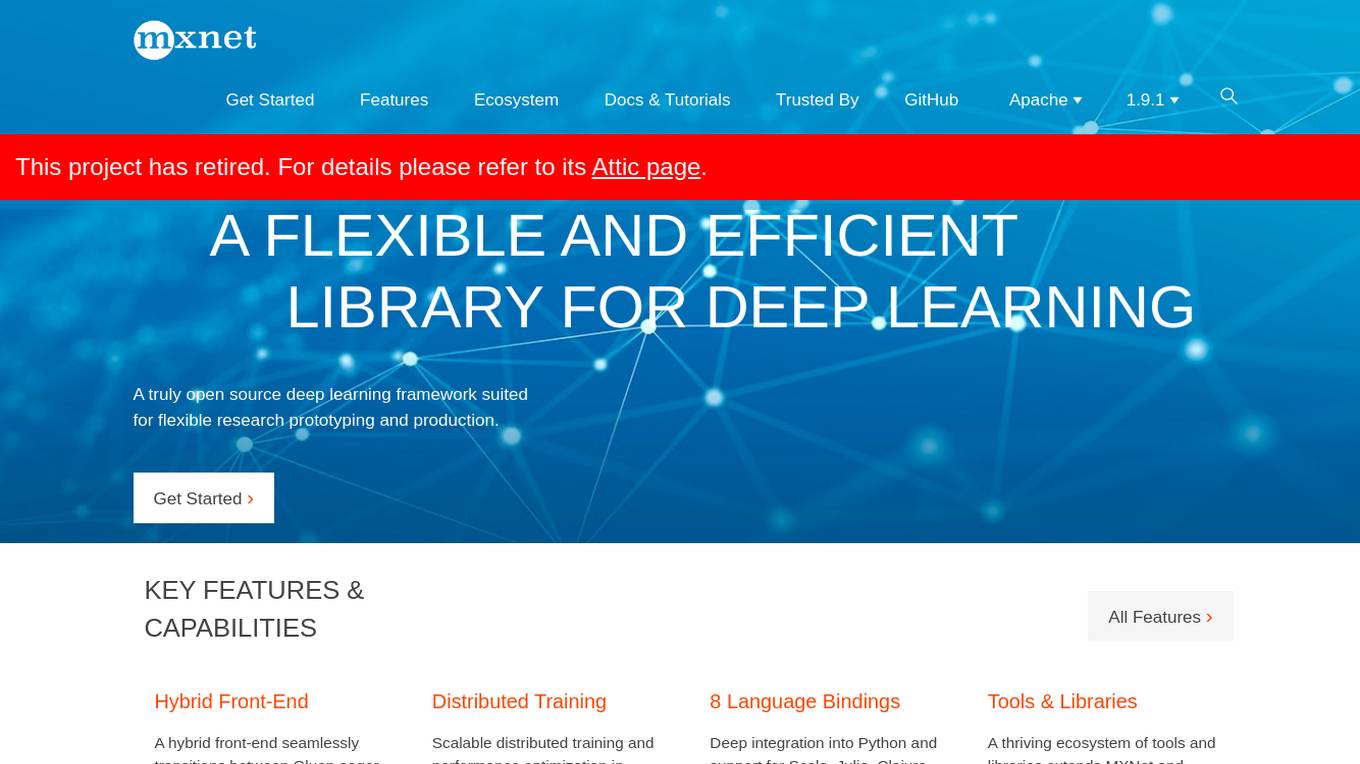
Apache MXNet
Apache MXNet is a flexible and efficient deep learning library designed for research, prototyping, and production. It features a hybrid front-end that seamlessly transitions between imperative and symbolic modes, enabling both flexibility and speed. MXNet also supports distributed training and performance optimization through Parameter Server and Horovod. With bindings for multiple languages, including Python, Scala, Julia, Clojure, Java, C++, R, and Perl, MXNet offers wide accessibility. Additionally, it boasts a thriving ecosystem of tools and libraries that extend its capabilities in computer vision, NLP, time series, and more.

TensorFlow
TensorFlow is an end-to-end platform for machine learning. It provides a wide range of tools and resources to help developers build, train, and deploy ML models. TensorFlow is used by researchers and developers all over the world to solve real-world problems in a variety of domains, including computer vision, natural language processing, and robotics.

AI Seed Phrase Finder & BTC balance checker tool for Windows PC
The AI Seed Phrase Finder & BTC balance checker tool for Windows PC is an innovative application designed to prevent the loss of access to Bitcoin wallets. Leveraging advanced algorithms and artificial intelligence techniques, this program efficiently analyzes vast amounts of data to pre-train AI models. Consequently, it generates and searches for mnemonic phrases that grant access to abandoned Bitcoin wallets holding nonzero balances. With the “AI Seed Finder tool for Windows PC”, locating a complete 12-word seed phrase for a specific Bitcoin wallet becomes effortless. Even if you possess only partial knowledge of the mnemonic phrase or individual words comprising it, this tool can swiftly identify the entire seed phrase. Furthermore, by providing the address of a specific Bitcoin wallet you wish to regain access to, the program narrows down the search area. This targeted approach significantly enhances the program’s efficiency and reduces the time required to ascertain the correct mnemonic phrase.
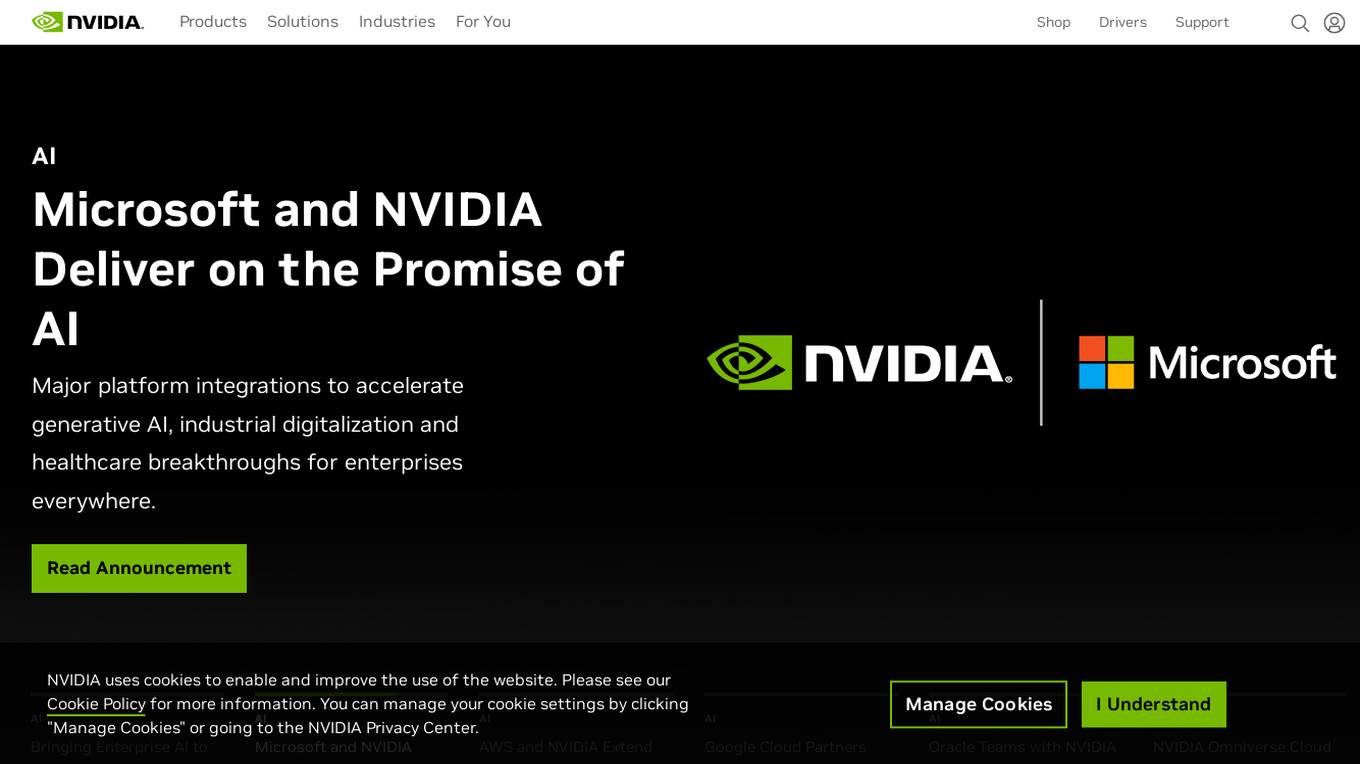
NVIDIA
NVIDIA is a world leader in artificial intelligence computing. The company's products and services are used by businesses and governments around the world to develop and deploy AI applications. NVIDIA's AI platform includes hardware, software, and tools that make it easy to build and train AI models. The company also offers a range of cloud-based AI services that make it easy to deploy and manage AI applications. NVIDIA's AI platform is used in a wide variety of industries, including healthcare, manufacturing, retail, and transportation. The company's AI technology is helping to improve the efficiency and accuracy of a wide range of tasks, from medical diagnosis to product design.

Neural Frames
Neural Frames is an AI-powered video animation generator that allows users to create videos from text prompts. It is designed to be easy to use, even for those with no prior experience in video editing. Neural Frames offers a variety of features, including the ability to create videos in any style, control the camera, and add music. It is also possible to train custom AI models to achieve specific styles or character consistency.
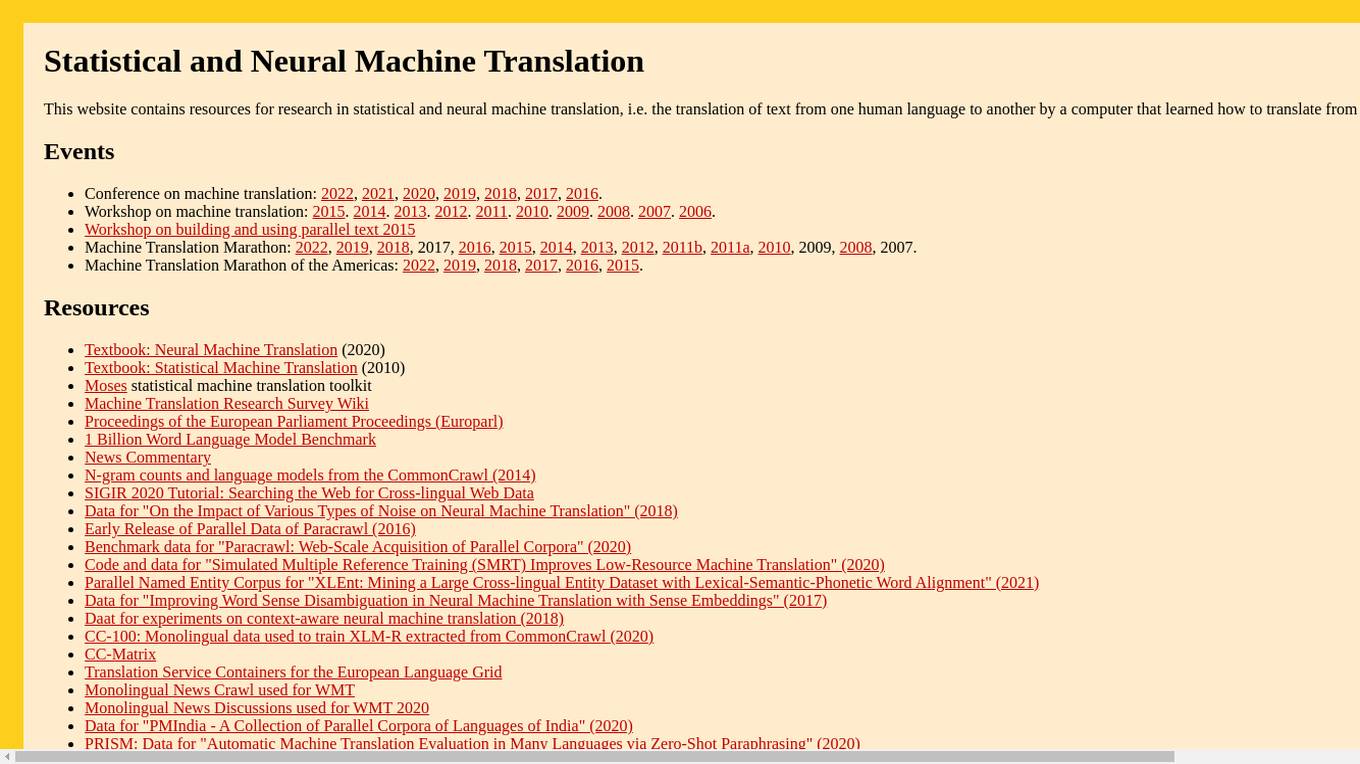
Machine Translation Research Hub
This website is a comprehensive resource for research in statistical and neural machine translation. It provides information, tools, and datasets related to the translation of text from one human language to another using computer algorithms trained on vast amounts of translated text.
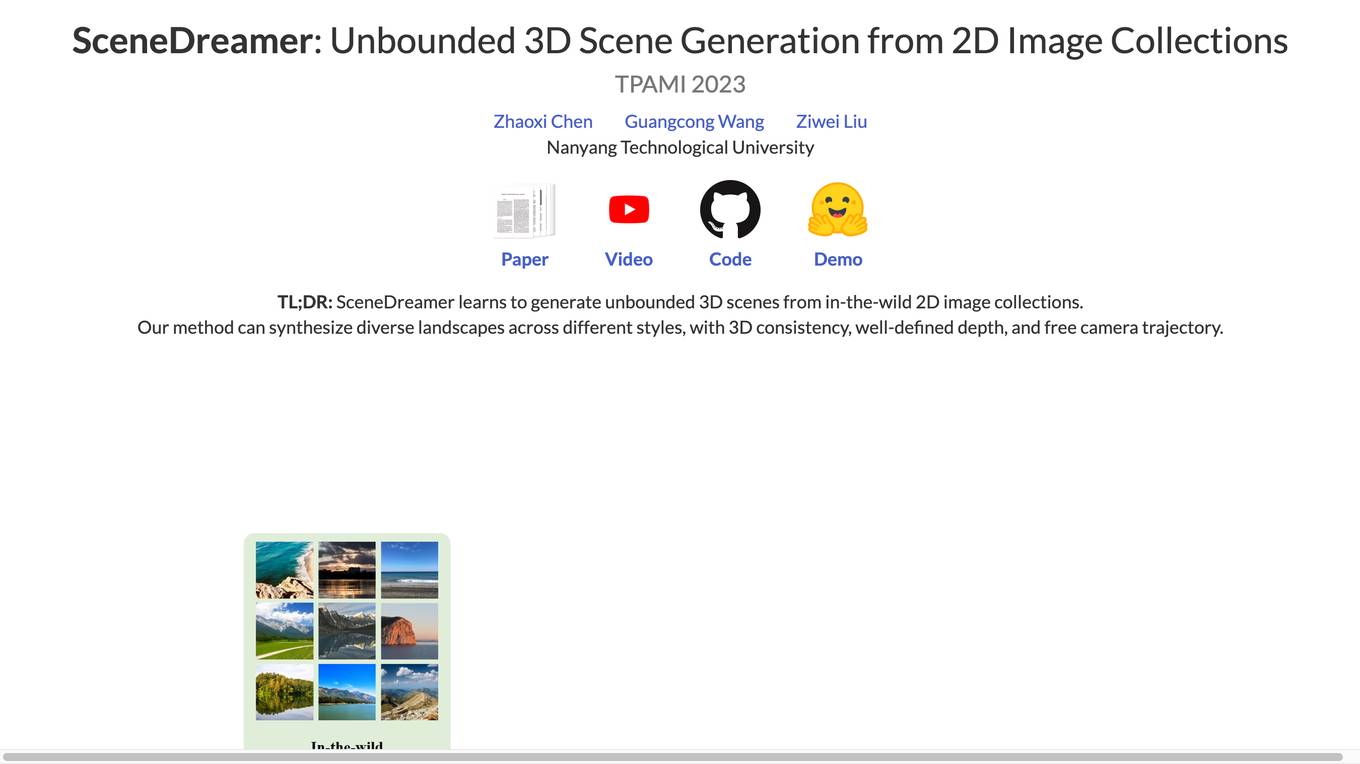
SceneDreamer
SceneDreamer is an AI tool that specializes in generating unbounded 3D scenes from 2D image collections. It utilizes an unconditional generative model to synthesize large-scale 3D landscapes with diverse styles, 3D consistency, well-defined depth, and free camera trajectory. The tool is trained solely on in-the-wild 2D image collections, without the need for 3D annotations. SceneDreamer's framework includes an efficient 3D scene representation, a generative scene parameterization, and a neural volumetric renderer to produce photorealistic images.

AI Safety Initiative
The AI Safety Initiative is a premier coalition of trusted experts that aims to develop and deliver essential AI guidance and tools for organizations to deploy safe, responsible, and compliant AI solutions. Through vendor-neutral research, training programs, and global industry experts, the initiative provides authoritative AI best practices and tools. It offers certifications, training, and resources to help organizations navigate the complexities of AI governance, compliance, and security. The initiative focuses on AI technology, risk, governance, compliance, controls, and organizational responsibilities.

IBM Watsonx
IBM Watsonx is an enterprise studio for AI builders. It provides a platform to train, validate, tune, and deploy AI models quickly and efficiently. With Watsonx, users can access a library of pre-trained AI models, build their own models, and deploy them to the cloud or on-premises. Watsonx also offers a range of tools and services to help users manage and monitor their AI models.

Outlier AI
Outlier AI is a platform that connects subject matter experts to help build the world's most advanced Generative AI. It allows experts to work on various projects from generating training data to evaluating model performance. The platform offers flexibility, allowing contributors to work from home on their own schedule. Outlier AI aims to redefine how AI learns by leveraging the expertise of domain specialists across different fields.

Athletica AI
Athletica AI is an AI-powered athletic training and personalized fitness application that offers tailored coaching and training plans for various sports like cycling, running, duathlon, triathlon, and rowing. It adapts to individual fitness levels, abilities, and availability, providing daily step-by-step training plans and comprehensive session analyses. Athletica AI integrates seamlessly with workout data from platforms like Garmin, Strava, and Concept 2 to craft personalized training plans and workouts. The application aims to help athletes train smarter, not harder, by leveraging the power of AI to optimize performance and achieve fitness goals.
3 - Open Source AI Tools
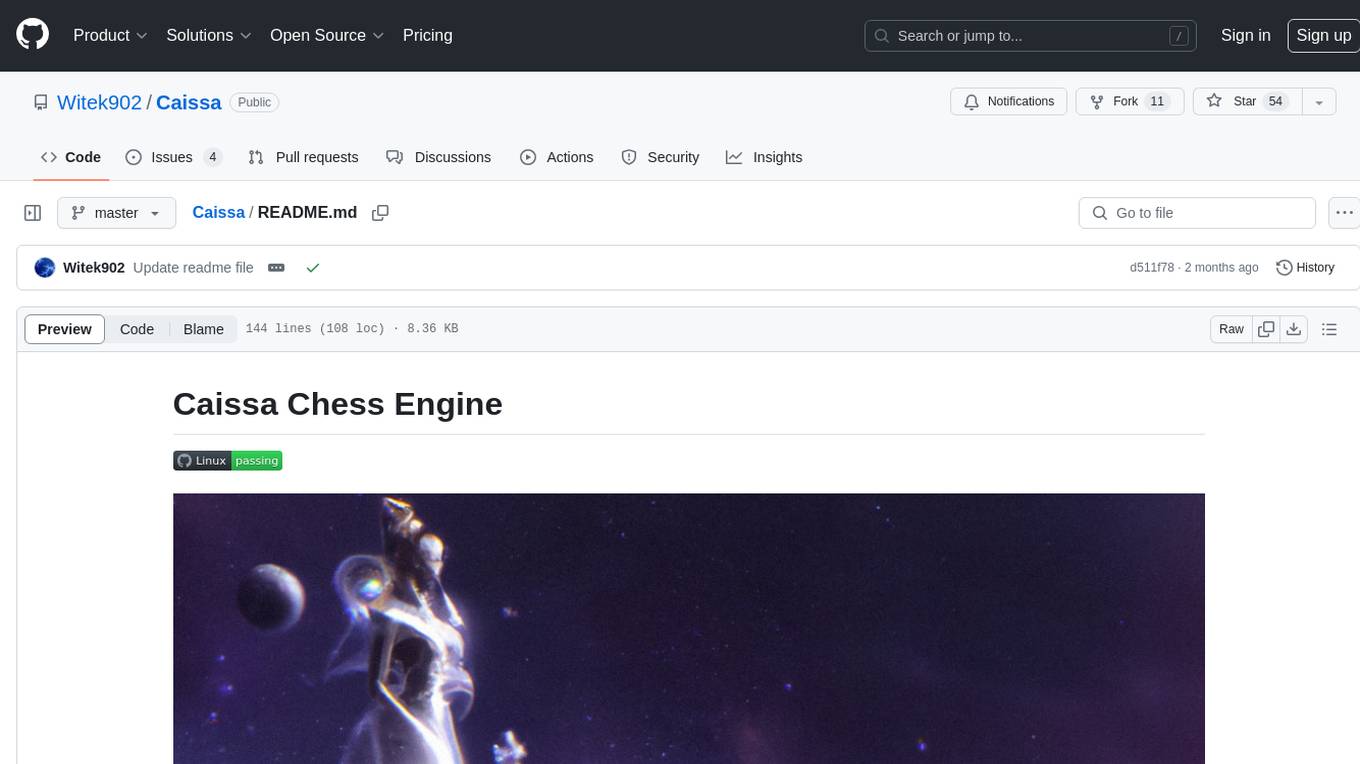
Caissa
Caissa is a strong, UCI command-line chess engine optimized for regular chess, FRC, and DFRC. It features its own neural network trained with self-play games, supports various UCI options, and provides different EXE versions for different CPU architectures. The engine uses advanced search algorithms, neural network evaluation, and endgame tablebases. It offers outstanding performance in ultra-short games and is written in C++ with modules for backend, frontend, and utilities like neural network trainer and self-play data generator.
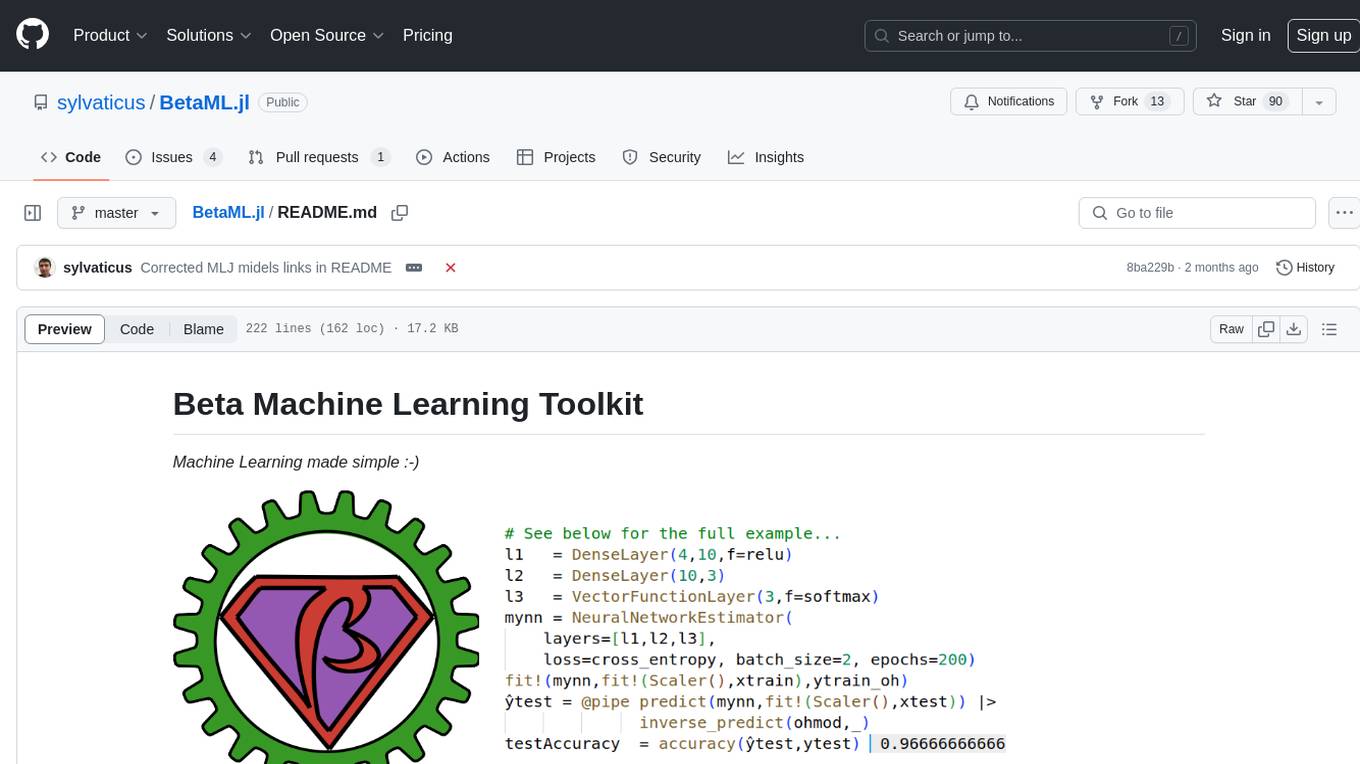
BetaML.jl
The Beta Machine Learning Toolkit is a package containing various algorithms and utilities for implementing machine learning workflows in multiple languages, including Julia, Python, and R. It offers a range of supervised and unsupervised models, data transformers, and assessment tools. The models are implemented entirely in Julia and are not wrappers for third-party models. Users can easily contribute new models or request implementations. The focus is on user-friendliness rather than computational efficiency, making it suitable for educational and research purposes.

nmed2024
Nmed2024 is a GitHub repository that contains code for a neural network model designed for medical image analysis. The repository includes scripts for training the model, as well as pre-trained weights for quick deployment. The model is specifically tailored for detecting abnormalities in medical images, such as tumors or fractures. It utilizes deep learning techniques to achieve high accuracy and can be easily integrated into existing medical imaging systems. Researchers and developers in the healthcare industry can leverage this tool to enhance the efficiency and accuracy of medical image analysis tasks.
20 - OpenAI Gpts
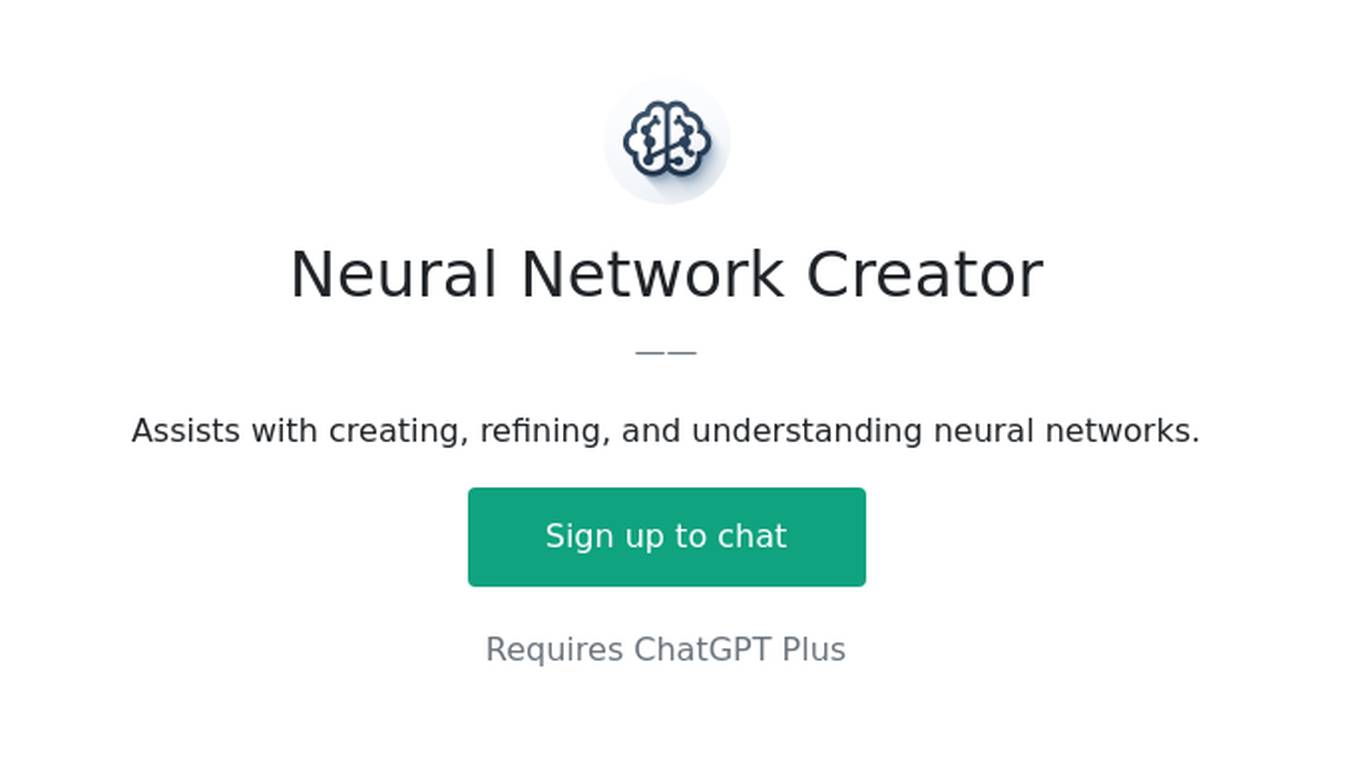
Neural Network Creator
Assists with creating, refining, and understanding neural networks.
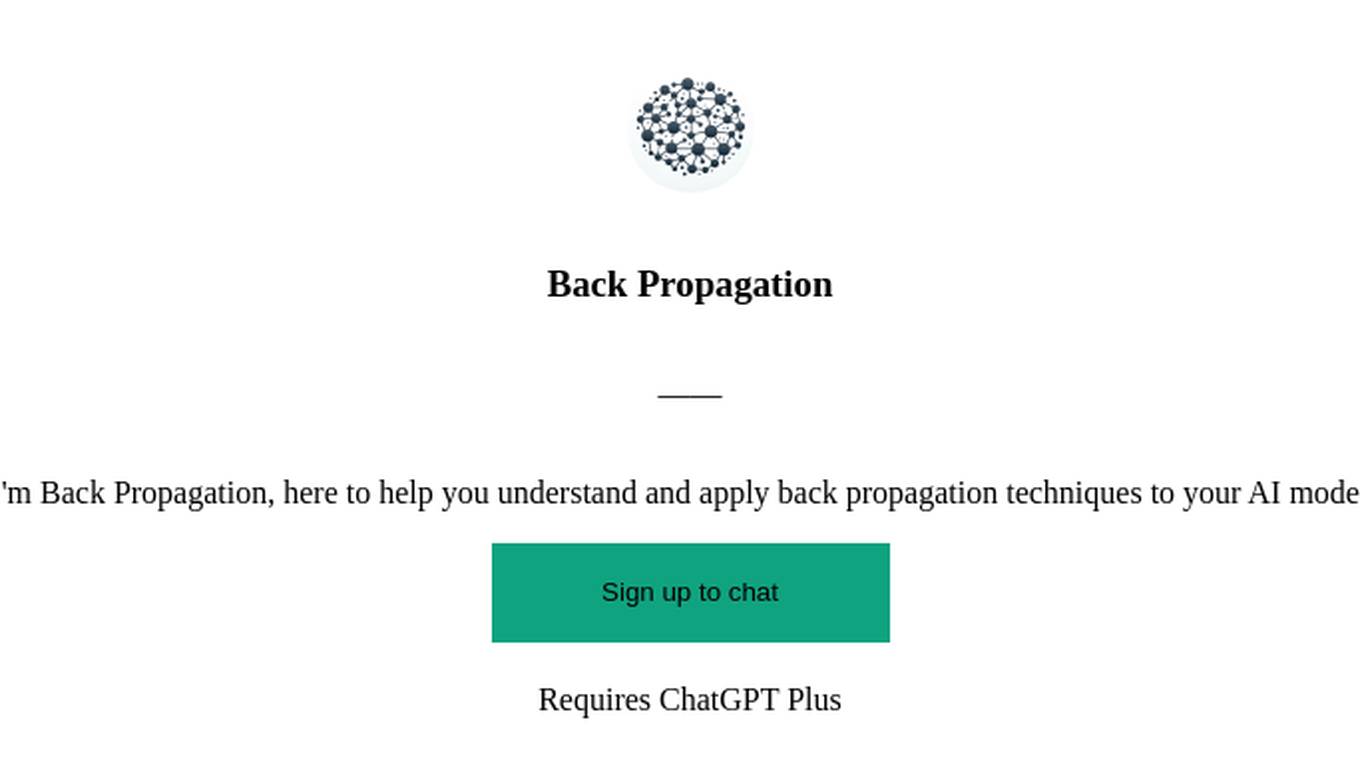
Back Propagation
I'm Back Propagation, here to help you understand and apply back propagation techniques to your AI models.

TensorFlow Oracle
I'm an expert in TensorFlow, providing detailed, accurate guidance for all skill levels.

How to Train a Chessie
Comprehensive training and wellness guide for Chesapeake Bay Retrievers.

The Train Traveler
Friendly train travel guide focusing on the best routes, essential travel information, and personalized travel insights, for both experienced and novice travelers.

How to Train Your Dog (or Cat, or Dragon, or...)
Expert in pet training advice, friendly and engaging.

TrainTalk
Your personal advisor for eco-friendly train travel. Let's plan your next journey together!

Monster Battle - RPG Game
Train monsters, travel the world, earn Arena Tokens and become the ultimate monster battling champion of earth!
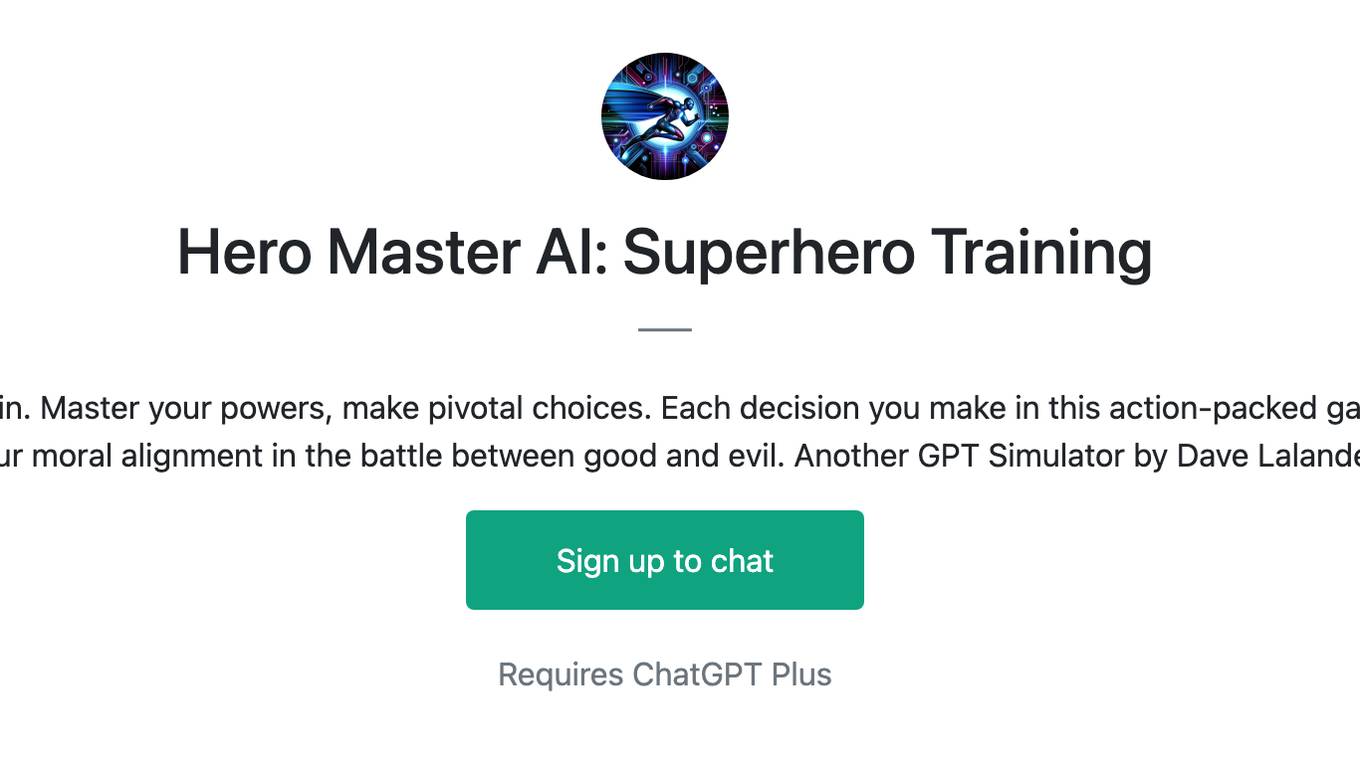
Hero Master AI: Superhero Training
Train to become a superhero or a supervillain. Master your powers, make pivotal choices. Each decision you make in this action-packed game not only shapes your abilities but also your moral alignment in the battle between good and evil. Another GPT Simulator by Dave Lalande

Pytorch Trainer GPT
Your purpose is to create the pytorch code to train language models using pytorch
